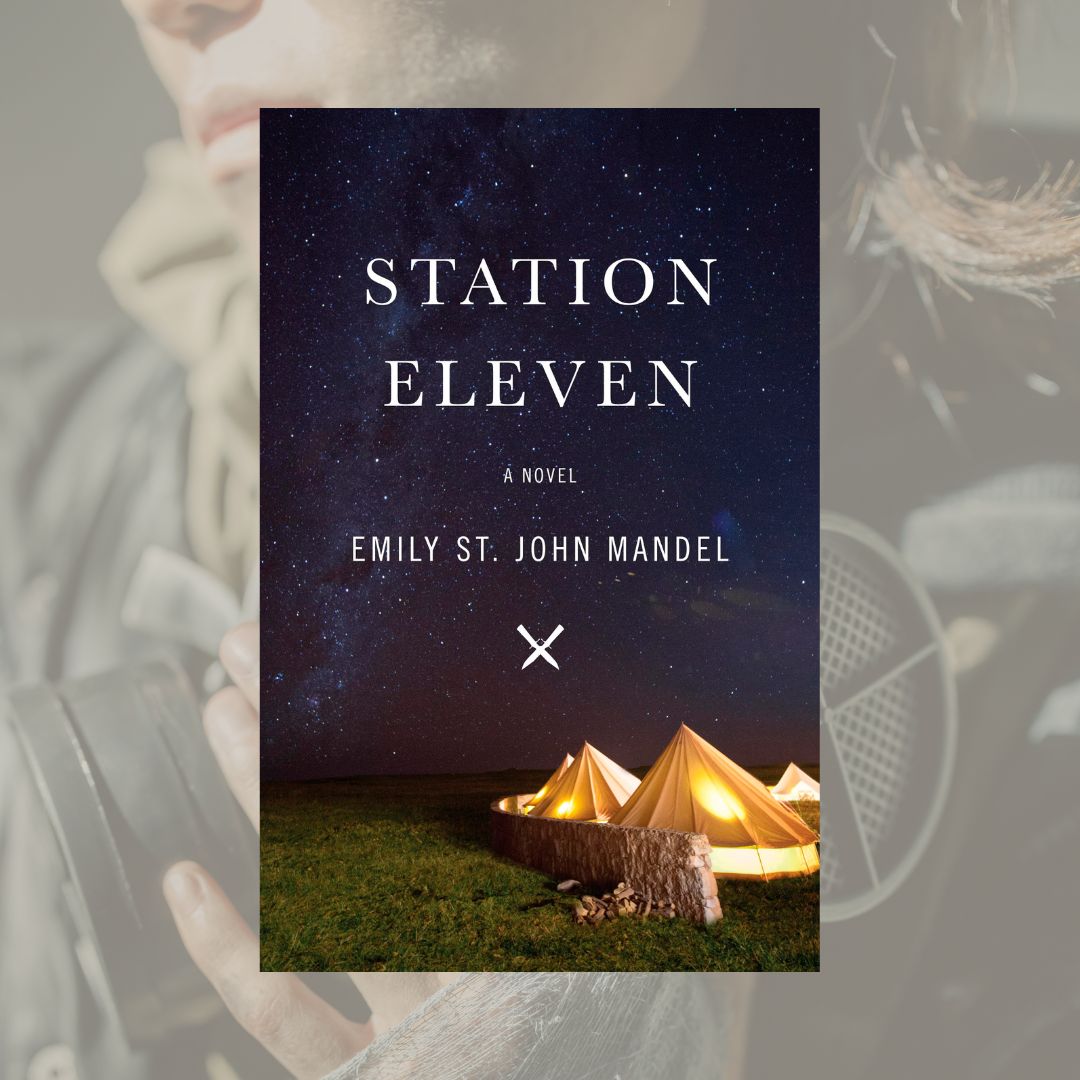Spoiler-Free Review
While pandemic/apocalypse/end-of-the-world stories are not usually my first choice, I do always find them so interesting. Each author creates a unique perspective on what it could look like for the world as we know it to end – and in my opinion, Station Eleven stands out.
What’s Station Eleven about?
When a flu pandemic kills the majority of humans in a short span of time, the ones who are left must contend with a new world. This story follows an interconnected web of people across the years before and after, from a Shakespeare actress in a traveling caravan to a former corporate professional now living in an airport.
This book doesn’t tell us what happens to the world, it tells us what happens to individuals.
In my opinion, a lot of apocalypse stories fall into one of two types: either the characters are fighting zombies, or the story itself is too wide in scope. Station Eleven does neither, and that’s why I liked it.
There are no zombies in this book, for starters. That leaves it open for a more character-driven story that focuses less on the immediate need to kill undead attackers and more on the philosophical questions. These characters must each come to terms with the new world and their place in it. But beyond that, this story is defined by the microcosms – it’s not trying to tell us how society fell, but how people experienced the falling.
I found it interesting how this story depicted each small community forming. The traveling symphony. The aggressive rural villages that worship a supposed prophet. The abandoned travelers who never end up leaving the airport. All of these created a unique image of how humans, strangers, can congregate and latch on to each other.
While this story does address life and death in equal measure, I felt it did so in a uniquely human way. I loved that all of the characters were connected, and that these connections were not always apparent at first. Despite the nature of the book, the ending was hopeful.
Note: I listened to it as an audiobook. I thought the narrator did a great job at distinguishing between voices during the dialogue scenes, but I did feel that perhaps I didn’t get very much emotional delivery throughout. I can’t tell if it would have been different reading a physical book, but I enjoyed the story either way.
Should you read Station Eleven?
This is definitely for you if you enjoy apocalypse stories – and if you’re not usually into those, this is a good one to try. This is really a story about humanity, human nature, community, and hope told through the lens of the end of the modern world. It’s 3rd-person multi-POV, so from chapter to chapter, you might be following a different character in a different time.
It’s also a TV series on HBOMax. I haven’t watched it yet, so I can’t speak to how close it is to the book. If you have, let me know how it was!
If you liked this review, please consider subscribing! I don’t yet have a newsletter or anything fancy (I’m a one-woman show and I do this for fun), but if you subscribe you’ll get an automated email notification like this on Tuesdays and Thursdays at 11:30am Central time when I post a new blog:

I would love to have you around! Subscribe below.
Check out some of my other recent blogs:









3 responses to “Station Eleven: The microcosms at the end of the world”
Excited to read this one!
I hope you like it!
I bet even though they all have different experiences, I bet the story is how people can keep going, even when things are really hard. And that even in tough times, people can find hope and make connections with others.